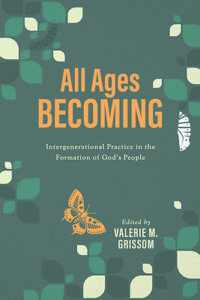Intergenerational leaders are fostering communities of hope and creativity by prioritizing relationships, embracing diverse gifts, and encouraging discipleship across all ages. Valerie Grissom identifies 10 keys to intergenerational leadership including facilitating faith rhythms, embracing curiosity, valuing diversity, and empowering all generations to lead. Leaders must resist reverting to old norms, focusing instead on life-giving, inclusive practices.
In 2021, I interviewed 14 intergenerational leaders from North America. As I interviewed these leaders, I realized that new intergenerational practices continue to spring up. All these intergenerational leaders testified to communities of hope, new emerging practices, and remarkable creativity. As I listened to what God was doing among them, I came to some important realizations regarding intergenerational Christian practice as an intergenerational leader:
1.Prioritize relationships. Building relationships must be at the forefront of all we do. When I asked all 14 leaders, every leader emphasized relationships in some way. The consensus: it takes a lot of time and space to listen and build these relationships. And we are not the same people, but we are continuing to become God’s people together; so we must take time—lots of time—to listen and hear together how we have been changed and how God is continuing to work in us.
2. Analyze the rhythms of practice. During the pandemic, we learned that we need to provide parents and households with rhythms of faith, or practices, that connect us with God and other generations. As we come back together for in-person gatherings, how might we incorporate rhythms of practice for both faith communities and households?
3.Do not forget that being intergenerational is missional. Several leaders reminded me that to be missional is to be intergenerational. Sarah Han says when we embrace all generations in the church, we are giving the world a “foretaste” of what the kingdom of God looks like (Han, 2021). How can we embody the kingdom of God if we do not value all the generations of God’s kingdom? Even further, we cannot fully embody the gospel if we do not include all generations.
4. Facilitate intergenerational discipleship. It takes all the generations to practice Christian discipleship. Discipleship cannot be done in a generational vacuum. Just as we learned in the pandemic that “we are in this together,” we realize that discipleship requires everyone and every age. Along this line, churches must equip and enable parents and household leaders to see how they are called to continue discipleship throughout the week at home, school, work, and play.
5.Strive to see intergenerational gifts. Intergenerational leaders must operate not from a mode of scarcity but by using what they have. They need to take stock of the gifts God has given them. Whether we only have two generations or five generations present, each generation, and all that person has to offer our community, is a gift to be cherished. Even more, we must look to our culture, whether it be our location, our ethnicity, or our congregational history, and seek to find what gifts we have to cherish and honor. To see each person and every generation as a gift—that is at the heart of being intergenerational.
6. Encourage curiosity and experimentation. As intergenerational leaders, we must encourage an ethos where curiosity and experimentation are the norm. Not only does this help us become more open to how the Spirit is working in our midst, but it helps us learn to adapt to the ever-changing, somewhat messy, complicated efforts to build an intergenerational community.
7. Visualize a new intergenerational paradigm. Intergenerational leaders must cast a vision—a new imagination (or reimagination)—for how we might become more intergenerational. Often, because we operate in paradigms that emphasize programming based on age and stage, we must learn to inspire new intergenerational imaginations for what could be in the future.
8. Hold space for diversity and inclusion. For intergenerational pastor Theresa Cho, part of being intergenerational means opening up space to allow for the inclusion and acceptance of different views regarding ethnicity, race, gender, sexuality, and much more (Cho, 2021). Intergenerational relationships must allow space for us to live in the tensions that come from all generations practicing faith together.
9. Empower more generations to lead and participate. Many of these intergenerational leaders challenged current intergenerational leadership to reconsider how we might incorporate leadership and participation from all generations. Rather than merely addressing keychain leadership (in which older generations need to hand over the keys of leadership to younger generations, which is definitely an appropriate first step), many of these intergenerational leaders spoke strongly regarding addressing systemic structures in their institutions that hindered younger and older generations from leading and participating in communities of faith together (Power, Mulder, Griffin, 2016).
10. Resist the urge to go back to the old normal. So many of these leaders insisted with urgency: “We can’t and should not go back to the way it was before!” Instead, several leaders emphasized leading with a nonanxious presence, and pausing, learning to only pick up the things that are life-giving to all generations. Practicing discernment, rather than leading in survival mode, becomes an important practice for intergenerational leaders as we move forward.
This article is excerpted from All Ages Becoming: Intergenerational Perspectives in the Formation of God’s People (Abilene Christian University Press, 2023) edited by Valerie M. Grissom. This book is available at Abilene Christian University Press, Cokesbury, and Amazon.

Related Resources
- Being the Body of Christ through Intergenerational Christian Practice featuring Valerie Grissom — Watch the Leading Ideas Talks podcast video | Listen to the podcast audio version | Read the in-depth interview
- Intergenerational Ministry for the Post-pandemic Church by Doug Powe
- Why Intergenerational Ministry? By Liz Perraud
- 3 Key Principles for Intergenerational Preaching by David M. Csinos






